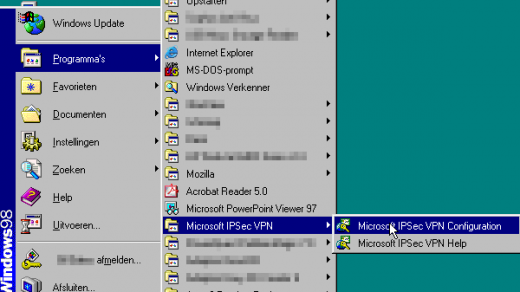Understanding the Importance of a VPN Test for Optimal Performance
In today’s digital age, where online privacy and security are of paramount importance, conducting a VPN test is essential for anyone using a Virtual Private Network (VPN). A well-executed VPN test ensures that your online activities remain secure and efficient without compromising on speed or reliability. By identifying potential weaknesses and performance bottlenecks, a VPN test can safeguard your digital footprint against potential threats.
Regular VPN testing plays a pivotal role in maintaining optimal connectivity and privacy. It helps in detecting any vulnerabilities within your VPN connection, ensuring that encryption levels and IP address protections are functioning at their peak. Moreover, by consistently monitoring your VPN’s performance, you can optimize speed and enjoy seamless browsing experiences without interruptions. Embracing routine VPN tests not only enhances security but also provides peace of mind, fully leveraging the benefits of secure and fast internet access.
Understanding the Importance of a VPN Test for Optimal Performance
In the digital age, maintaining privacy and ensuring secure online activities are more crucial than ever. Virtual Private Networks, or VPNs, have emerged as an essential tool for achieving these goals. However, to maximize their benefits, it’s vital to conduct a VPN test. This evaluation not only ensures the VPN’s efficiency but also its ability to protect user data and provide consistent service. Understanding the importance of a VPN test is the first step toward improving both online security and performance.
The Significance of Conducting a VPN Test
Conducting a VPN test is a proactive approach to safeguard against potential vulnerabilities and inefficiencies. Just like any other technology, VPNs can suffer from issues that might not be immediately obvious. With the aid of a comprehensive VPN test, users can uncover these hidden problems, allowing for timely solutions and an enhanced online experience.
A VPN test primarily assesses the VPN’s capability to maintain a secure connection. It helps in identifying weak spots that could be exploited by cyber threats, ensuring that user data remains protected as it traverses the internet. Furthermore, a VPN test evaluates the reliability of the encryption protocols in use, guaranteeing that they are up to modern standards and resistant to the latest cyberattack techniques.
Identifying Potential Weaknesses and Performance Issues
Another crucial aspect of a VPN test is its ability to spotlight performance-related problems. Issues like slow connection speeds, frequent disconnections, and inconsistent performance can severely hinder the user experience. By systematically testing a VPN, these problems can be diagnosed and rectified before they lead to larger issues. For instance, speed tests can reveal whether the VPN server is underperforming or if network bottlenecks are present.
Additionally, a VPN test can help determine if there are DNS or IP leaks, situations where the user’s original IP address or DNS requests are inadvertently exposed. Such leaks compromise anonymity and can occur unexpectedly, making them critical to address through regular testing.
The Benefits of Regular VPN Testing for Privacy and Speed
Scheduled VPN tests bring about several benefits that elevate the overall privacy, speed, and reliability of the VPN service. Firstly, continuous testing ensures that user privacy is maintained at all times. As VPN providers update their software and enhance security measures, regular tests ensure these updates are effective and that no new vulnerabilities have been introduced.
Secondly, VPN tests can significantly improve connection speeds. Identifying lagging servers or optimizing the paths that data packets follow can minimize latency and enhance the VPN’s performance. This is particularly beneficial for users engaging in bandwidth-intensive activities, such as streaming video or gaming online, where speed and stability are paramount.
Lastly, regular VPN testing fosters a robust understanding of the VPN’s capabilities and limitations. It empowers users to make informed decisions about which features they may need to prioritize, such as selecting different server locations or adjusting security settings to align with their specific needs.
In conclusion, the importance of conducting a VPN test cannot be overstated. Whether for uncovering security weaknesses, enhancing performance, or ensuring long-term reliability, a VPN test remains a vital component of maintaining optimal online privacy and efficiency. By comprehensively understanding and leveraging the insights gathered from these tests, users can better protect their data and enhance their browsing experience in an increasingly interconnected world.
Step-by-Step Guide to Conduct a Comprehensive VPN Test
Conducting a VPN test is essential in ensuring that your virtual private network (VPN) operates efficiently and securely. This involves a thorough examination of multiple critical aspects such as speed, security, and IP address verification. In this section, we provide a detailed guide on how to perform a comprehensive VPN test, including the necessary tools and methods to interpret the results effectively.
1. Assemble Your Toolkit for VPN Testing
Before commencing any VPN test, it’s crucial to have the right tools at your disposal. Ensure you have a reliable internet connection and the VPN software you intend to test. You will also need testing tools that can measure various aspects of VPN performance:
- Speed Test Tools: Use services like Speedtest.net or Fast.com to measure the download and upload speeds both with and without the VPN.
- IP Address Verification Tools: Websites like WhatIsMyIPAddress.com can verify the IP address assigned to you by the VPN server.
- Security Test Tools: Tools like DNSLeakTest.com and IPLeak.net can help determine potential leaks in DNS or IP address security.
2. Conducting the Speed Test
Speed is a paramount factor in any VPN performance test. Here’s how to carry out a VPN speed assessment:
- Test Your Baseline Speed: Before connecting to your VPN, perform a speed test to determine your internet connection’s baseline speed under normal conditions.
- Connect to Your VPN: Launch your VPN software and connect to a server. Choose a nearby server to minimize latency and maximize connection speed.
- Run a Speed Test: With the VPN enabled, perform another speed test. Note the download and upload speeds as well as the ping results.
- Compare Results: Analyze the difference between the two sets of results. A slight decrease in speed is typical due to the encryption process, but significant slowdowns could indicate performance issues.
3. Verifying IP Address and Location
One of the primary purposes of using a VPN is to mask your IP address to protect your privacy. Carry out these steps to confirm your IP address and location:
- Prepare for the Test: Similar to the speed test, note your original IP address and location without the VPN by visiting an IP checker website.
- Activate Your VPN: Connect to the VPN and choose any server worldwide to obscure your real IP location.
- Verify the New IP Address: Head back to the IP checker website to ensure that the IP address has changed and reflects the server’s location instead of your real one.
4. Evaluating Security via Leak Tests
Leak tests are pivotal in ensuring that your VPN does not compromise your privacy by exposing your DNS queries or IP address.
- DNS Leak Test: Utilize DNSLeakTest.com to check for any potential DNS leaks by running both the standard and extended tests.
- IP Leak Test: Head over to IPLeak.net to scan for leaks that could reveal your true IP address, even with the VPN active.
- WebRTC Leak Test: This checks for WebRTC bugs that might expose your IP address through certain web browsers. Websites like BrowserLeaks.com can test this vulnerability.
In any of these tests, detecting leaks means your VPN may not be effectively safeguarding your data, calling for immediate action, such as changing setting configurations or opting for a more secure VPN service.
5. Interpreting and Acting on VPN Test Results
Understanding your VPN test outcomes is vital in optimizing your VPN’s performance:
- Speed Adjustments: If speeds are drastically reduced, experiment with different servers or consider upgrading to a VPN known for high-speed performance.
- Addressing IP Discrepancies: Ensure that no real IP addresses appear when checking, especially after switching servers. Persistent issues may warrant altering DNS settings or seeking provider assistance.
- Enhancing Security: Upon identifying security leaks, consult the VPN provider’s support or make necessary setting changes. A quality VPN should have robust leak protection features by default.
Regularly repeating these tests is encouraged to maintain optimal VPN performance as network configurations and software updates could introduce new performance dynamics. Armed with these detailed steps and insights, you can confidently perform VPN tests to ensure your online activities remain swift, secure, and private.
Top Tools and Techniques for Effective VPN Testing
In the realm of VPN testing, selecting the right tools and techniques is crucial for accurately assessing performance and security. With a multitude of options available, it’s essential to understand which tools will best suit your needs in conducting a comprehensive VPN test. Here, we explore the most popular tools and techniques to help you make informed decisions for optimal VPN performance.
Popular Tools and Software for VPN Testing
Several tools and software are available to facilitate thorough VPN testing. Each offers unique features and benefits, catering to various aspects of VPN performance, including speed, security, and reliability. Here are some of the most recommended tools:
-
Speedtest.net
Speedtest.net is a widely recognized tool for evaluating internet speed, making it an excellent choice for testing VPN speed. It allows users to measure download, upload, and ping rates with their VPN enabled and disabled, helping identify any performance discrepancies.
-
IPLeak.net
This tool is essential for checking whether your VPN is effectively masking your IP address. IPLeak.net offers comprehensive tests to detect any DNS, IPv6, or WebRTC leaks, ensuring your VPN maintains your privacy and security.
-
DNSLeakTest.com
DNSLeakTest is specifically designed to identify potential DNS leaks that could compromise your privacy. By running this test, you can verify whether your DNS requests are being properly routed through the VPN, safeguarding your browsing activity.
-
VPNInsights.com
This platform provides a holistic approach to VPN testing, offering tools to assess speed, security, and server performance. It’s a great all-in-one solution for users seeking detailed insights into their VPN configuration.
-
Wireshark
Wireshark is a network protocol analyzer that allows for in-depth inspection of network traffic. It is ideal for tech-savvy users who wish to examine the data packets sent through their VPN, helping identify potential vulnerabilities or anomalies.
Comparing Techniques for VPN Speed Testing
When it comes to testing VPN speed, various methods can be employed to ensure accurate measurements. While tools like Speedtest.net provide a straightforward approach, additional techniques can offer a deeper analysis:
-
Server Location Testing
VPN speed can vary significantly depending on the server location. By testing multiple servers in different geographical regions, users can determine which locations offer the best performance relative to their own geographical position.
-
Protocol Comparison
Most VPNs offer different protocol options (e.g., OpenVPN, IKEv2, WireGuard). Each protocol has its own speed and security characteristics. Experimenting with various protocols can help find the best balance between speed and security for your needs.
-
Time-Based Testing
Running speed tests at different times throughout the day can reveal patterns in VPN performance, helping users identify peak hours or conditions that may affect speed.
Assessing VPN Security with Various Techniques
Besides speed, ensuring that your VPN maintains robust security is paramount. Here are several techniques to verify VPN security:
-
Encryption Level Verification
Confirming the encryption standard (e.g., AES-256) used by your VPN can reassure users of their data’s safety. Higher encryption levels offer better protection against potential breaches or spying.
-
Leak Tests
Aside from tools like IPLeak.net and DNSLeakTest, conducting regular leak tests also involves manually checking for any signs of IP or DNS leaks by accessing sites designed to expose such vulnerabilities.
-
Firewall and Kill Switch Tests
Testing whether your VPN’s firewall and kill switch functionalities are working effectively is key to avoiding data leaks if your connection unexpectedly drops. Simulating a network interruption can help assess these features.
Recommendations for Selecting the Right VPN Testing Tools
Choosing the appropriate tools and techniques for VPN testing depends largely on your specific needs and usage scenarios. Consider the following recommendations when selecting tools:
-
Identify Core Needs
Determine whether speed, security, or reliability is your primary concern. If online gaming or streaming is your main activity, prioritize tools that provide detailed speed analysis.
-
Compatibility and Ease of Use
Ensure that the tools you select are compatible with your operating system and easy to use, especially if you are not very tech-savvy. User-friendly interfaces can significantly ease the testing process.
-
Comprehensive Features
Opt for tools that offer multiple testing options. Multifaceted tools, like VPNInsights, provide a more holistic view of your VPN performance and security.
-
Budget Considerations
While many tools are free, some advanced features may be available only with premium versions. Assess whether the additional cost meets your needs and justifies the investment.
In conclusion, thorough and consistent VPN testing is pivotal in maintaining optimal performance and security. By selecting the right combination of tools and techniques based on individual needs, users can ensure their VPN operates at peak efficiency while safeguarding their privacy online.
Conclusion
In an era where online privacy and security are paramount, conducting a regular VPN test is essential to ensure that your virtual private network is performing optimally. By understanding the importance of VPN testing, users can safeguard their internet activities and identify potential vulnerabilities that may compromise their privacy.
A thorough VPN test not only highlights weaknesses but also provides users with actionable insights to enhance both speed and security. By following the step-by-step guide outlined, individuals can conduct comprehensive tests and interpret the results effectively, thereby ensuring their VPN meets their specific needs.
With numerous tools and techniques available, selecting the most suitable option can seem daunting. However, by considering the recommendations provided, users can opt for tools and methods that align with their requirements, thus optimizing their VPN performance. The key to maintaining a robust online presence lies in regular assessment and adaptation, leveraging the insights gained from consistent VPN testing to stay ahead in the ever-evolving digital landscape.



